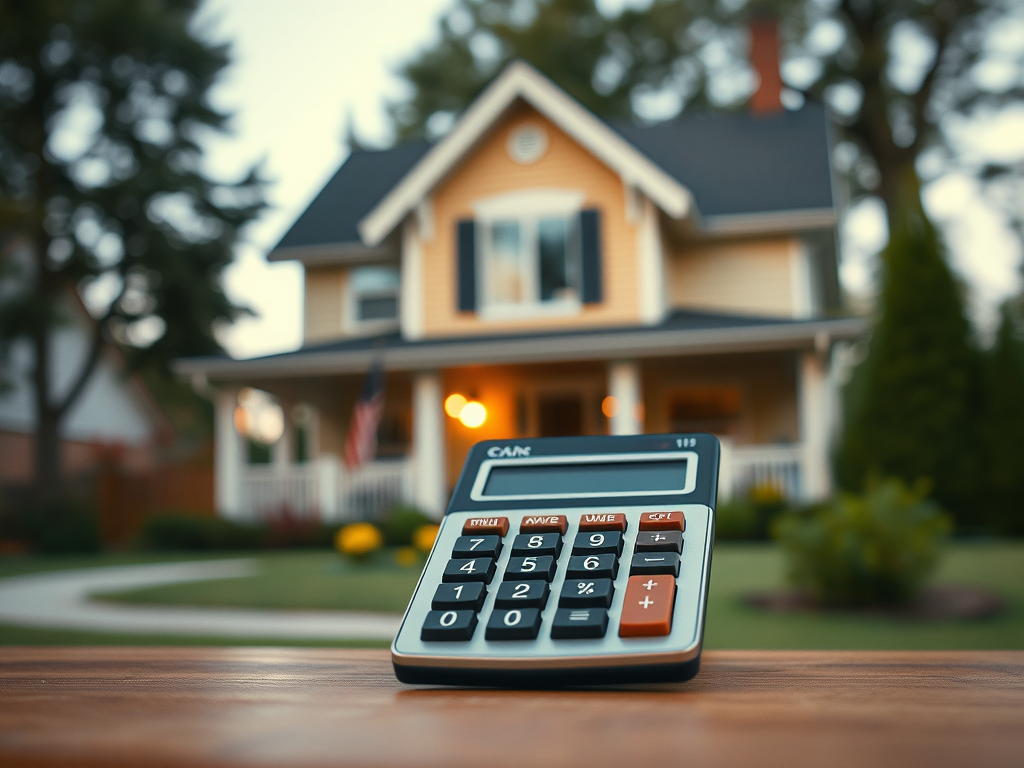Mortgage options
Buying a home with a mortgage will likely be your biggest purchase and largest single debt, so making informed choices is important. Start by familiarising yourself with the different types of mortgages and mortgage terminology. Understanding the available options will help you choose a mortgage that best suits your needs, as getting this wrong can be costly.

The most common mortgage options
The most common mortgage options you will encounter are fixed interest rate, tracker, and variable interest rate mortgages.
Fixed rate mortgages fix the interest rate and repayments for a specified period, usually around 3 to 5 years. The interest rate and payments usually increase after the fixed period ends.
Tracker rate mortgages have an interest rate that is a set percentage plus the base rate of interest and may have a fixed period. At the end of the fixed period, the mortgage converts to a variable rate mortgage.
A variable rate mortgage is usually a set interest rate above a certain benchmark determined by the bank (often the base rate of interest set by the Bank of England). As the interest rate is variable it can go up or down, resulting in fluctuating payments, increasing, or decreasing in line with interest rate changes.
Mortgage terminology
Mortgage deposit
The mortgage deposit is the amount saved to use as a part payment when buying a home with a mortgage. Most mortgage lenders require a minimum deposit of around 5% to 20% of the property value. A larger deposit may get you a more favourable interest rate and mortgage terms.
LTV or loan to value
Loan to value is the percentage of the loan to the value of the property. If you are purchasing a house for £200,000 and have a deposit of £20,000, you have a 10% deposit and an LTV of 90%.
Redemption penalty or early repayment charge
Redemption or early repayment penalties are fees you may be charged if you pay off your mortgage early or within a specified period. The fees can vary, being a fixed amount, a percentage of the mortgage balance at repayment, or several months of interest. The fees can vary depending on how long you have had the mortgage. Make sure you check the details of early redemption fees in the mortgage terms and conditions.
Offset mortgage
With an offset mortgage, your mortgage is linked to a savings or current account. The balance of the linked account is offset or deducted from the mortgage balance before interest is calculated. This reduces the amount of interest that you pay on your mortgage. However, you won’t receive any interest on the balance in the linked account.
Re-mortgage
Re-mortgaging is when you switch your existing mortgage to a new mortgage lender or take out a new mortgage with your current provider.
Porting
Some mortgage lenders will allow you to transfer your existing mortgage to a new property whilst keeping your current interest rate and existing mortgage terms.
Base rate
This is the base rate of interest as set by the Bank of England. This is the rate of interest that the Bank of England will lend to other financial institutions.
Stamp duty land tax
Stamp duty is the tax or levy payable to HMRC when you purchase a home.
Equity
This is how much of your home you own. Equity equals the house sale value minus the remaining mortgage. A house valued at £200,000 with a mortgage of £150,000, has equity of £50,000 in the property.
Negative equity
This is when the property value is less than the outstanding mortgage on the property. This can happen after a house price crash or a decrease in property values.
The table below provides a comparison of fixed and variable rate mortgages.
| Factor | Fixed rate mortgage | Variable & tracker rate mortgage |
|---|---|---|
| Interest rate | Interest is fixed for a specific time period | Interest rate is a number of percentage points above the base rate and varies with base rate changes |
| Payments | Fixed monthly payments for fixed period | Will vary according to changes in base rate, so can go up or down |
| Budgeting | Easier to budget with fixed payment | Can be difficult to budget if base rate and payment amount change frequently |
| Best if | Expect interest rates to rise | Expect interest rates to decrease |

Use our mortgage calculator to estimate the repayment on a mortgage
Other cost considerations when buying a home
Conveyancing and searches
Conveyancing costs are the fees charged by a solicitor or conveyancer, who is acting on your behalf to purchase of the property. These fees include searches, preparing the legal paperwork, and transferring the deeds of ownership. The mortgage lender will require a survey of the property. The survey checks that the property is suitable for lending against, is worth what you are paying for it, and has no serious structural or other issues. Various surveys are available depending on the age and condition of the property. They vary in cost, becoming more expensive the more detailed the survey is.
Mortgage arrangement fees
These are fees that a mortgage provider may charge when taking out a mortgage with them. Mortgage setup fees can vary and are usually around £500 to £1,000. If you use a mortgage broker or financial advisor, they usually charge you a fee in addition to the bank’s mortgage setup fee.
Stamp duty and first-time buyers
Stamp duty is the tax you pay to HMRC (the government) when you purchase a property. Stamp duty rates and thresholds are changing from 1st April 2025. From April 2025, first-time buyers purchasing their first home can buy a property up to £300,000 exempt from stamp duty. Stamp duty of 5% is payable on amounts exceeding the exempt threshold of £300,000. A first-time buyer purchasing a home costing £500,000, will pay stamp duty of £10,000 (5% of £200,000). The £300,000 exemption is only available on properties up to £500,000. If the property price exceeds £500,000, the £300,000 tax-free exemption is lost and the standard tax-free stamp duty threshold of £125,000 applies. A firsttime buyer purchasing a property of £600,000 will pay £20,000 in stamp duty. This is calculated as follows:
- 0% on the exempt amount of £125,000
- 2% of the property value between £125,000 and £250,000 = £2,500
- 5% of the property value between £250,000 and £925,000, which is £350,000 x 5% = £17,500
- Total of £20,000
The breakdown of the stamp duty bands and rates is listed below, with some illustrations. Some property websites provide calculators, that calculate the stamp duty payable on a particular property, which is a useful resource.
Stamp duty for those already on the property ladder
If this is not your first property purchase, stamp duty will be payable at the rates below from 1st April 2025. Purchasing a second property, in addition to your existing home, incurs an additional 5% stamp duty tax. From April 2025, the 0% stamp duty threshold is decreasing to £125,000. Properties valued between £125,000 and £250,000 will incur 2% stamp duty, while 5% stamp duty is payable on the portion of the property value exceeding the £250,000 threshold.
Stamp duty bands and rates from April 2025
Stamp duty rates for first time buyers on properties up to £500,000
| Property value | Stamp duty % |
|---|---|
| Up to £300,000 | 0% |
| £300,001 to £500,000 | 5% |
Standard stamp duty rates
| Property value | Main home | 2nd property |
|---|---|---|
| Up to £125,000 | 0% | 5% |
| The next £125,001 to £250,000 | 2% | 7% |
| The next £675,000 (£250,001 to £925,000) | 5% | 10% |
| The next £575,000 (£925,001 to £1.5 million) | 10% | 15% |
| The remaining amount (above £1.5 million) | 12% | 17% |
Examples of stamp duty:
| Property value of £295,000 | Stamp duty |
|---|---|
| 0% on the first £125,000 | £0 |
| 2% on the next £125,000 | £2,500 |
| 5% on the remaining £45,000 | £2,250 |
| Total stamp duty payable | £4,750 |
| First-time buyers pay | £0 |
| Property value of £500,000 | Stamp duty |
|---|---|
| 0% on the first £125,000 | £0 |
| 2% on the next £125,000 | £2,500 |
| 5% on the remaining £250,000 | £12,500 |
| Total stamp duty payable | £15,000 |
| First time buyers pay | £10,000 |
Removal Costs
Friday is typically the most popular day for completing house purchases and moving in. As a result, moving on a Friday can be more expensive than other weekdays. Do get several removal quotes as they can vary significantly. There’s always the option of asking friends and family to help and providing food and drink as compensation.
Learn more about the home-buying process

